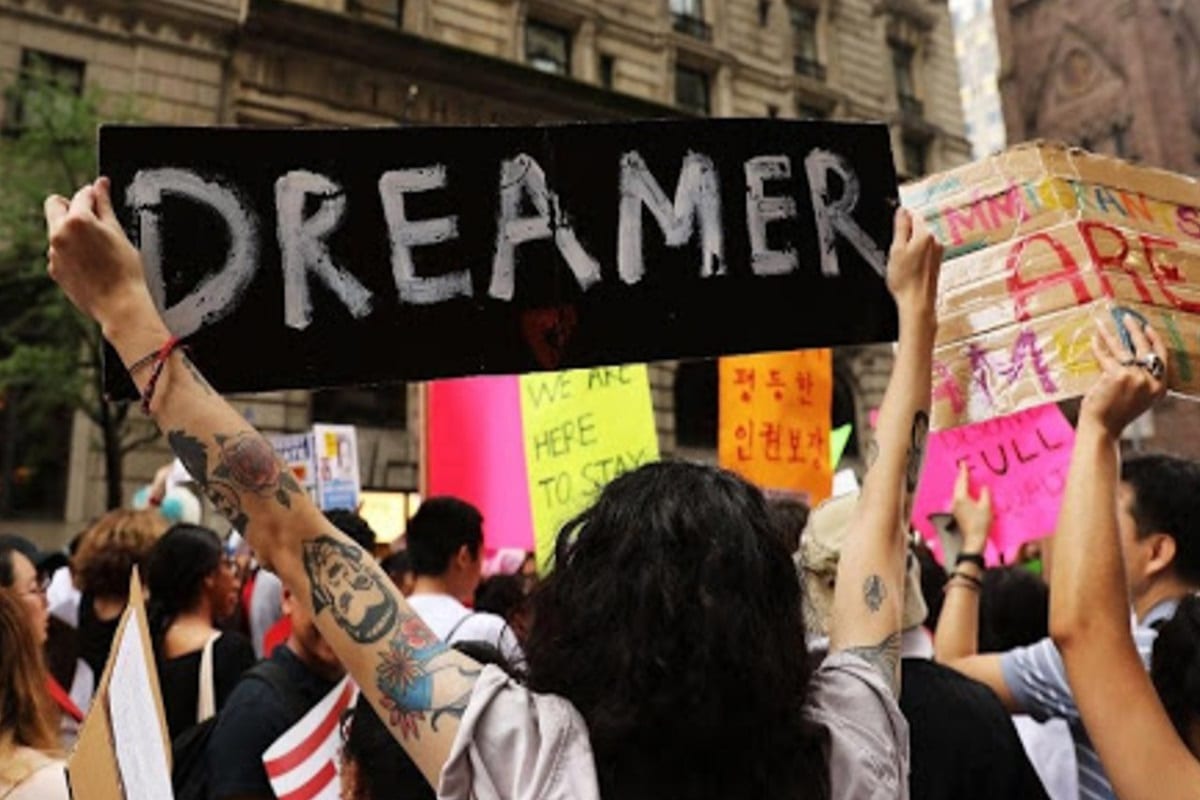Young “dreamers” in Texas experience uncertainty as DACA ends

TEXAS – Martín Aguilar had many dreams ahead of him, the 20-year-old is studying a professional career, he speaks english perfectly and his tastes are the same as those of his american friends, however, he is originally from Mexico and entered illegally together with his parents. country.
He mentioned that the most difficult thing he thought he would live was to cross the desert until he entered the United States, once they did, they were received by relatives who were also in an illegal condition. Over the years they moved to Texas where Martín currently works and studies.
His future was already settled, at least in her plans: he would marry and set up a business near his home, however now that Andrew Hanen, judge of the South Texas District Court, ruled on July 16 that the program of Deferred Action for Childhood Arrivals (DACA) violated United States law by being created in 2012 by then-President Barack Obama, Martin simply no longer knows what is coming for his future.
“I am afraid to even leave the house, I feel that all my guarantees have been lost, I dream that they come for me and return me to Mexico where we no longer have a home and I have even forgotten many words in spanish… here is my home and someone he must defend us dreamers, we love the United States”, he said.
Like he, more than 50 thousand young immigrants who in recent months applied for protection in the DACA program are in a situation of uncertainty, since when it was determined that the Department of Homeland Security violated the Administrative Process Act when creating the DACA program, the Federal Government cannot protect new applicants.
This program protects young immigrants who entered the United States illegally before they turned 16 from deportation.
Until April 1, 2021, there were more than 55,500 applications for DACA, this without counting the requests registered between April and June.
According to Thomas Sáenz, president of the Mexican American Fund for Education and Legal Defense (MALDEF), this ruling will only affect those who had not previously been approved for protection.
Currently, the DACA program has about 650 thousand people registered, the vast majority of Hispanic origin, who have a temporary residence and work permit.
The United States Citizenship and Immigration Service indicates that as of December of last year, 81% of the so-called Dreamers were originally from Mexico; 4% from El Salvador; 3% from Guatemala; 2% from Honduras and 1% from Peru and the rest from various countries.
The fear that some of the young people who requested the amparo live is that it was necessary to hand over all their information, so now they fear that this data will be used to locate them and force them to return to their place of origin.
Alicia Contreras, of Mexican origin, commented that she had her hopes pinned on DACA.
“We are good people, hard-working and eager to get ahead in this country that, although it did not welcome us with open arms, it has given us the opportunity to study and work, our only hope is that decisions will change and allow us protect us”, he added.
When asked what she would do when she was deported to her place of origin, she commented that she would have to try to enter the United States again, because in Mexico no one waits for her, her entire family is illegally in this country.
